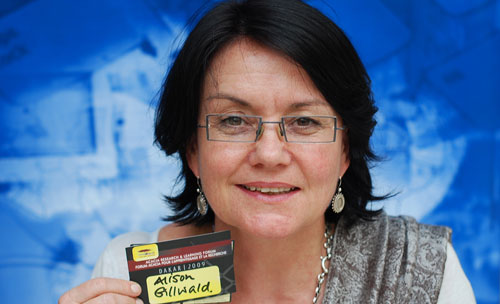
[By Alison Gillwald]
Ten years ago, world-renowned academic and activist Manuel Castells came to SA. It was not long after the publication of his seminal trilogy on the rise of the network society. From Silicon Valley to Yokohama, he had tracked the ways states can accelerate the technological modernisation of economies — in some cases transforming the fate of nations within a few years.
Castells compared such states with those, such as Russia, that retarded their national progress. He concluded pessimistically, in his final volume, that Africa’s pervasive predatory states stalled development by denying citizens participation in the informational economy. So endemic was this condition, he argued, that not even the democratic and developmental forces then emerging in SA would pull the region out of underdevelopment.
We were still flushed with our miraculous transition to democracy. The first G8 meeting ever held in the South — and focusing on information and communications technology and development — had recently been hosted in SA by Thabo Mbeki, then deputy president. At a two-day seminar organised by the University of Cape Town’s Centre for Higher Education and Training, featuring some of the country’s leading economists, new policymakers and liberation intellectuals, we challenged Castells’s pessimistic view.
A more equitable society would include the participatory opening up of the communications sector. SA would ensure universal access to this brave new digital world and lead the region, in the flying-geese formation for which Japan was famous in the East Asian region, to developmental heights — so some of us argued, and Castells was tentatively persuaded.
Soon after that, as if to confirm our conviction, both a National Presidential Commission on the Information Society and Development and an International Presidential Advisory Council were established. The latter included all the biggest commercial, entrepreneurial and academic names in technology globally, including Castells.
But neither institution was able to stave off SA’s steady descent, over the next decade, down various global technology indices. Of 138 countries measured in the World Economic Forum e-Readiness Report, SA fell from 34th in 2004 to 61st in 2009 and was ranked 95th in terms of ICT usage. On the International Telecommunications Development Index, which also measures multiple factors contributing to information-society development, including infrastructure and access, the intensity of ICT use and ICT capability or skills, SA has slipped from 77th in 2002 to 91st in 2007.
‘Managed liberalisation’
The advice of international experts remained unheeded. SA clung to its failing policy of “managed liberalisation”, which constrained competition, despite evidence that the global demand for affordable services was being met best through effectively regulated competitive markets. The international presidential advisory body petered out.
Flawed institutional arrangements in the sector compromised regulatory effectiveness. The absence of political leadership, after the first rush of reform in the sector, led to key state institutions being unable to attract or retain the skills to direct and regulate this key infrastructure industry, with its monopolistic and duopolistic legacies.
The ICT sector in SA entered a decade-long period of policy and regulatory paralysis in which decision-making and administrative justice were ultimately abdicated to the courts. Castells, meanwhile, published more globally read texts expounding his central concept of “informationalism” — the mode of production of the advanced stage of capitalism, distinguishable from the previous industrial era by “the action of knowledge upon knowledge itself” as the main source of productivity.
Last month, Castells returned to SA. A decade after his first visit, in another two-day seminar at Cape Town’s Centre for Higher Education and Training, he once more engaged with us on our informational development and the harnessing of these creatively destructive technologies and their global networks in the service of wider economic, political and social gains.
Gone was our naive conviction that the miracle nation could overcome all. The impact of the global recession, structural unemployment, the human and economic cost of HIV/Aids, and the political discontent arising from the economic marginalisation of so many brought our idealism face to face with reality.
In that seminar, 10 years after the first, Castells concluded that there had been no informational development, or the human development on which it depended; indeed, it seemed that, in global comparative terms, there was retardation.
Particularly bleak was the slow pace, even regression, in some areas of human development — a necessary condition for informational development. The figures for basic indicators such as life expectancy are devastatingly low. There is a severe shortage of higher-level skills and institutional capacity in areas crucial to building a globally competitive knowledge economy.
In Japan, South Korea, Singapore and the Scandinavian countries, today’s leading informational economies, the state played a central role in developing a forceful supply-side policy. It invested in education — critical to citizens’ ability to adjust to technological change. Such states created the conditions for extensive investment in telecommunications and (now, particularly) broadband infrastructure.
Far from leading the flying-geese formation for developmental take-off of the region, SA has been overtaken as the continental leader on many ICT indicators. The most noteworthy is broadband, where penetration rates in some North African and island states way exceed SA’s.
There is increasing evidence of links between broadband penetration and economic growth. Thus SA’s poor performance in this area is cause for great concern. A 2010 global survey by the World Bank indicated that a 10% increase in broadband penetration results in a 1,38% increase in GDP. Today, a greater number of South Africans have Internet access at work and school than before, but we have one of the highest GDPs per capita in Africa and only 5% broadband penetration. We have not reached the critical mass of connections, estimated to be around 20%, for the “network effects” and associated positive multipliers to kick in and stimulate economic growth.
Today, ICT and broadband networks are at the core of economic-recovery strategies from the US to Australia, from Singapore to Mauritius. Yet they are little more than a footnote in the diagnostic report of SA’s National Planning Commission. The New Growth Path contains a two-line reference. In both, ICT is very narrowly conceived — as an industrial-age communications infrastructure for commercial distribution and regional integration. ICT’s transformative potential to drive productivity, to stimulate growth and employment, and to enable democracy is largely ignored.
- Alison Gillwald is executive director of research at ICT Africa and adjunct professor at UCT’s GSB Infrastructure Reform and Regulation Programme
- First published in the Mail & Guardian. Visit the Mail & Guardian Online, the smart news source
- Image of Gillward courtesy of the Acacia Learning Forum
- Subscribe to our free daily newsletter
- Follow us on Twitter or on Facebook
- Visit our sister website, SportsCentral (still in beta)




